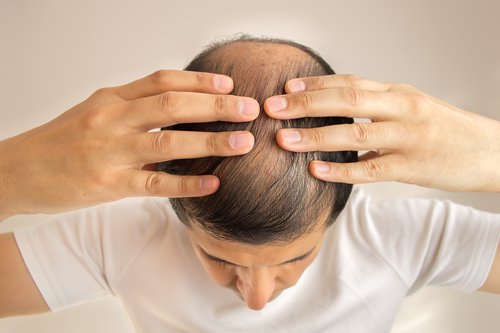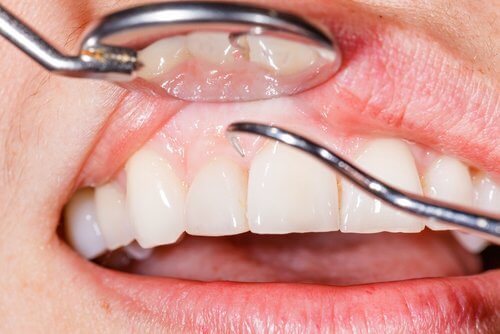Signs of an Overworked Liver

We all hear a lot of talk about the liver, since many health problems are associated with this organ either directly or indirectly. An overworked liver can lead to a lot of issues.
Why is this? Because the liver is often the victim of poor nutrition, pollution, stress, negative emotions, etc.
In this article, we’ll help you figure out if you suffer from an overworked liver by taking a look at a few easily recognizable signs and symptoms.
An overworked liver affects the entire body

The liver is a vital organ that’s closely linked with the circulation of the entire body. It also filters out toxic substances.
If the liver isn’t functioning correctly, your body could be feeling the effects in different ways. In this article, we’ll explain how to check your liver function by looking for signs in the face, mouth, skin and hair.
Wrinkles between the eyebrows
Wrinkles have long been believed to be a product of the aging process and that genetics will cause them to appear sooner or later.
However, wrinkles can reveal how your body is functioning and can be really useful in preventing disease.
This is the case with the vertical wrinkles that appear between the eyebrows. These can mean that you’re suffering from an overworked liver. The deeper they are, the more serious the problem.

Brown or green spots
Dark brown or green areas on the face are not just a cosmetic problem or a result of age or sun exposure.
These marks, especially if they are they are on the right side or near the temples, can indicate that you have an overworked liver. They could also be a sign that there is a problem with the gallbladder, pancreas, or spleen.
If the coloring in your face is yellowish, it could mean your liver function is impaired.
Oily skin on the forehead
Skin type is another factor that we usually attribute to genetics or age. However, dry or oily skin could be an indicator of an internal imbalance.
When the skin on the forehead is oily, you might be suffering from impaired liver function. In some cases, it’s linked to excessive sweating.
Localized alopecia and gray hairs

In spring or autumn, it’s not uncommon to lose a little more hair than usual. However, some people suffer from unexplained hair loss over a prolonged period. To cure this problem, it’s important to determine which area the hair loss is occurring.
If the alopecia is located in the middle of the head or if your hair begins to gray, it could mean your organs, including your liver, are not functioning properly. This applies to both men and women.
Premature graying could also indicate problems with the gallbladder.
Vision problems
In traditional Chinese medicine, the liver directly affects the blood flow to the eyes. So if you’re experiencing vision problems, it could be due to an overworked liver.
When the liver is not functioning properly, the eyes can lose their natural brilliance, pupils may appear whitish and both the whites and areas around the eyes could take on a yellowish hue.
Struggling with deteriorating vision? Check out:
6 Tips for Improving Vision Naturally and Without Surgery
Inflammation of the gums and throat
Many people have inflamed gums that bleed easily when they brush their teeth. This issue is also linked to the liver, as well as inflammation in the throat.
Although we can use special toothpastes and mouthwashes to treat these problems, solving the sensitivity and inflammation of the gums and throat requires treating our livers better.
Do you have unexplained gum bleeding? Learn more:
14 Reasons Your Gums Bleed When You Brush Your Teeth

How’s your poop?
Our poop can also be an indicator of our bodies’ health that is often not give enough attention. The following are some signs that your poop could be trying to tell you about your liver function:
- Strong smelling, sticky stools are the result of poor digestion and fermenting food.
- Hard, dry pellet-like stools are typical of constipation, but are also related to poor liver function.
- Diarrhea.
- Pale or clay-colored stools.
- Stools that float are caused by fat that hasn’t been properly digested.
So, how’s your liver?
All cited sources were thoroughly reviewed by our team to ensure their quality, reliability, currency, and validity. The bibliography of this article was considered reliable and of academic or scientific accuracy.
- Pengyu Han, Dianxing Sun, Jie Yang. Interaction between periodontitis and liver diseases. (2016)
- nicehair.org website. Article: What is the connection between the liver and hair loss?
- Página web liverdoctor.com. Your skin reflects your liver. (2012).
This text is provided for informational purposes only and does not replace consultation with a professional. If in doubt, consult your specialist.








